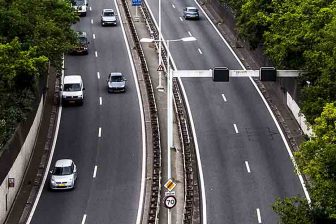EBRD: €75 mln for expansion Hungarian motorway network
M6-M60 motorway sections will be constructed and operated privately
London, United Kingdom – The EBRD is providing a €75 million loan to Mecsek Autópálya Koncesszios ZRt. (MAK) for the expansion of the Hungarian motorway network through a private operator.
The MAK consortium, formed by Strabag A.G., Bouygues Travaux Publics S.A., Colas S.A., John Laing Infrastructure Limited and Intertoll Europe has been chosen by the government as preferred bidder for the design, construction, financing, operation and maintenance 48 km section of the M6 motorway between Szekszárd and Bóly and the 30.2 km section of the M60 motorway between Bóly and Pécs.
The construction of the roads will improve transport links in Europe by expanding and improving the Trans European Network, of which the M6 is part. The road connects Budapest with the Croatian border and, once completed, will considerably facilitate traffic between Central Europe and the Balkans.
The consortium will receive a performance-related fee based on criteria such as maintenance, road accidents or correction of defects. Total construction time for the two sections will be 28 months and the total cost is estimated at €966 million.
With the signing of the 30 year concession agreement with the Government of Hungary the consortium has become the third private road operator in the country. Hungary has been a pioneer in the development of privately-financed motorway projects in the region and the EBRD has successfully supported the PPP motorway programme for many years.
Peter Reiniger, EBRD Business Group Director Central Europe, says the project is expected to have considerable demonstration effect in the region. The neighbouring Slovak Republic is currently working on tenders for similar motorway projects. Furthermore, he added, “the EBRD is in a unique position as we can provide both finance and our expertise and know-how”.
Hungary has five main motorways: M1 from Budapest/Budaörs to Hegyeshalom (169 km), M3 from Budapest to Nyíregyháza (216 km), M5 from Budapest to Szeged and the Serbian border (157 km), M6 between “érdi tető” interchange on the M0 Budapest orbital motorway and the Dunaújváros M6-M8 junction (58 km), and the M7 from Budapest to Balatonkeresztúr/Sormás (193 km). Users pay for access through electronic vignette.
The M5 and the M6 have been developed on PPP-basis, the others are owned and operated by the state. The EBRD has been involved in the financing of the M1/M15, M5 and M6 motorways.
U las zojuist één van de gratis premium artikelen
Onbeperkt lezen? Profiteer nu van de introductieaanbieding voor € 10,- per maand.
Bent u al abonnee?


